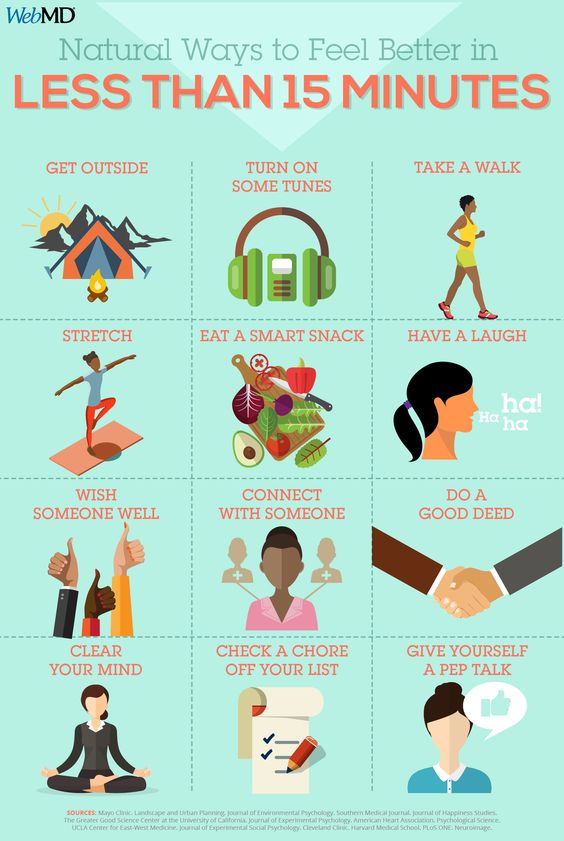August 27, 2019
By Kim Martin, Medical Administrator
Feelings of depression are completely normal feelings. These feelings may last only a day or two, but if you don't address these feelings eventually they can lead to full-blown depression. Mood Disorders can be mild to moderate depression, and the result of feeling distressed and feeling that your mood and emotions are out of your control.
We all suffer from setbacks in life. We grieve for the loss of a loved one or pet, unable to find a job, we cannot cope with an illness or suffer the abuse of a family member. If this is unresolved, over time we may stop noticing or caring about our own needs. We may start to struggle with controlling our own emotions or thoughts. Our thinking is altered and we allow self-criticism or blame to overcome us, we worry and have difficulty making simple day to day decisions. Worst case scenario is we may feel worthless or that everything is hopeless. We may start to limit our social interactions, deciding to instead spend the day in bed.
What does depression feel like? Lack of energy, chronic fatigue, overeating or loss of appetite. We may even have unexplained pain or a total sense of helplessness.
While not everyone displays all these symptoms, the impact on our overall health is significant. If the feelings persist, it is important to book a visit with your family doctor. Your family doctor is your go-to person for everything health-related, and mental health is just as important as physical health.
What can you expect when you visit the doctor for feelings of depression?
- Your doctor may have you fill out a "Goldberg Depression Scale" questionnaire or a similar form.
- Your doctor will want to do bloodwork and see if there is a physical reason for your symptoms. Patients will be asked about their use of alcohol or other self-medication drugs which may actually be making the feeling worse.
- Your doctor may suggest a counsellor and might prescribe some anti-depressants, and they will monitor any changes in your mood to see how they are working.
As a Health Care Worker, it's not our place to judge. We need to access the risk to the patient. We need to listen and give reassurance and encourage our patients to seek help. We are here to support patients through difficult times.
Talking to someone and having them listen can often help reduce the feelings of depression, just by knowing someone is listening and caring about you.
What can you do in your own life to turn the tide?
- Start by saying to yourself that you have value and you are important.
- Focus on yourself, and try some simple breathing exercises. Meditative breathing can hugely help our minds slow and our bodies relax, especially when you focus on positive thoughts and just listen to the sound of your breath.
- Do something really nice for yourself. Have a warm bath in Epsom salts - this can help you relax since Epsom salts contain magnesium which has been shown to lower blood pressure and calm anxiety.
- Have a nap or go to bed early and let yourself rest.
- Go for a walk on a safe trail and just be with nature. It is amazing how breathing fresh air and listening to the birds can just let yourself relax.
The most important thing is to seek help. Allow yourself to feel important. If you need to cry and grieve just do that. Lean on those around you to help you through tough times, whether it is friends and family, or your family doctor, seeking help is often the only way to start feeling better and moving forward.
Pay it forward. When you are feeling better, volunteer and help someone else who needs help. You understand what they might be going throguh, and by being a support for someone you support yourself as well.
Photo source: WebMD
If you are feeling severely depressed, seek immediate medical help:
- Fraser Health Crisis Line: 604-951-8855
- Crisis Centre BC, online chat & 24/7 phone lines: 1-800-784-2433
- Pathways BC Mental Health Resources
- Fraser Northwest Division Crisis Support Guide
__________________________________________________________
Kim Martin is the Medical Office Manager for the Obesity Medicine and Diabetes Institute and the Medical Weight Management Program. She is a 20-year Medical Administrator working with Specialists and General Practitioners. She is certified with the Practice Support Program for the Doctors of BC and has a certificate in Mental Health First Aid from the Mental Health Commission of Canada. Kim has an extensive education background and received a Certificate of Marketing Management from BCIT.


Become a Member
Quick Links
Contact Us
Executive Director
Communications
Patient Attachment
Mailing Address:
FNW Division of Family Practice
701 - 625 Fifth Avenue
New Westminster, BC
V3M 1X4
Social Media:
Follow for updated health information
@FraserNorthwest

We mindfully acknowledge that we work, play, and live within the ancestral, traditional territory of theKʷikʷəƛ̓əm (Kwikwetlem), Qiqéyt (Key-Kayt) and Coast Salish Nations.

